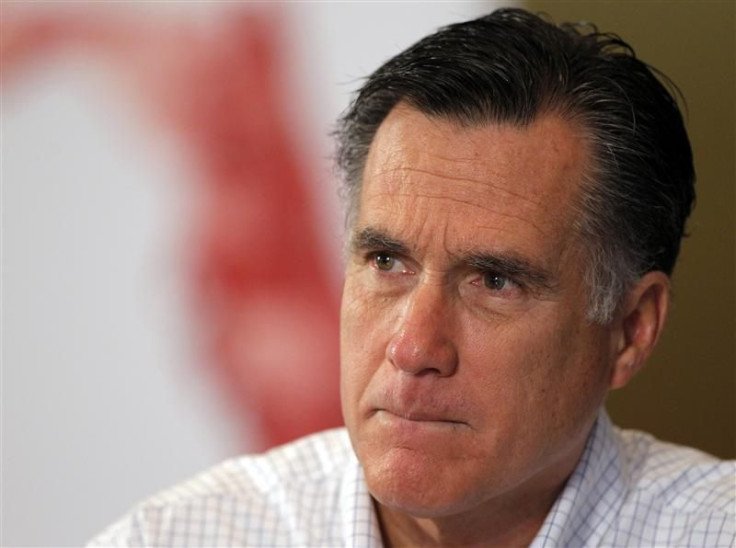'I'm Not Concerned About the Very Poor:' Mitt Romney's Top 5 Affluent Gaffes

Mitt Romney won a majority of voters in every income category and financial situation en route to a commanding victory in the Florida primary, but the affluent former Massachusetts governor continues to bolster a perception that he is out of touch.
Romney said during a Tuesday morning interview with CNN that he was not concerned about the very poor, adding that you can focus on the very poor, that's not my focus. While the comment reprised a common theme of Romney's campaign -- his commitment to struggling middle class Americans who do not qualify for public safety nets -- it provides easy fodder for opponents eager to caricature Romney as detached from the concerns of most Americans.
It wouldn't be the first time. Romney has shown a propensity for making tone-deaf statements that remind voters of his immense wealth and corporate background. Here is a list of the five most cringe-worthy:
1. Corporations Are People.
When a heckler at the Iowa State Fair interrupted Romney to demand that corporations pay higher taxes, Romney responded that corporations are people, my friend. Romney's basic point was that corporations are made up of people who take home whatever profits the company generates (he failed to point out that corporations also enjoy many of the same legal protections as people), but he prompted angry responses from the audience. Democratic National Committee Chairwoman Debbie Wasserman Schultz calling Romney's comment a shocking admission that illustrated the GOP's misplaced priorities).
2. I'm Also Unemployed.
After listening to unemployed Floridians detail their struggles, Romney joked that I'm also unemployed. While that is technically true, he didn't mention the millions of dollars his investments generate annually, or the fact that he has been preoccupied running for president.
3. Quiet Rooms
The issue of income inequality is playing an increasingly prominent role in the campaign -- President Barack Obama invoked the theme in a rousing speech that set the tenor for his campaign, and one of his top economic advisers detailed recently how the expanding gulf between rich and poor has been bad for the U.S. economy. But when NBC's Matt Lauer asked Romney about the issue about the distribution of wealth and power in this country, Romney dismissed Obama's critiques as a matter of envy. When pressed, Romney said that it's fine to talk about those things in quiet rooms and discussions about tax policy and the like.
Romney's subsequent release of his tax returns demonstrated how current tax policies have allowed him to pay an effective tax rate of about 14 percent despite his vast fortune.
4. I know what it's like to worry whether you're going to get fired.
Romney tried to tell voters at a New Hampshire rally that he was sympathetic to their plight, saying that I know what it's like to worry whether you're going to get fired. There were a couple of times I wondered if I was going to get a pink slip. His choice of words proved particularly ill-advised given that Bain Capital, the private equity investment firm Romney headed, in some instances caused workers to be fired when Bain restructured their companies to make them more profitable. Texas Governor Rick Perry, who would later denounced Bain as an example of vulture capitalism, retorted that I have no doubt that Mitt Romney was worried about pink slips, whether he was going to have enough of them to hand out.
5. $10,000 Bet
A flustered Romney gave Perry more fodder during a December debate, betting the Perry $10,000 to settle a dispute about whether Romney had touted the Massachusetts universal health care law he signed as a national model. Perry replied that he was not in the betting business.
--
© Copyright IBTimes 2024. All rights reserved.





















